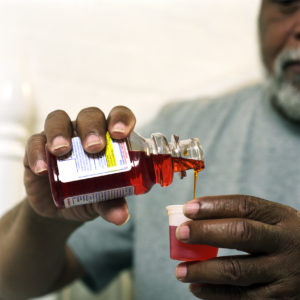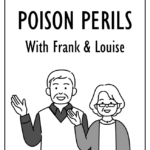Cold Medicine
Expand All Collapse All
- What is it?
- Precautions
What is it?
 What is cold medicine?
What is cold medicine?
Cold medication is a broad term that describes a large number of medications meant to make one or more of your cold symptoms feel better.
Many over-the-counter cold medications have more than one active ingredient in them. It is best to take a medication that treats only the symptoms that you have. You can ask your pharmacist for advice on which medication to choose, even if you are buying an over-the-counter product.
These are the most common active ingredients found in cold medications:
- Antihistamines: Antihistamines are used to treat allergies, but certain types may also help with the sneezing and runny nose from a cold. However, antihistamines may not be helpful for all people, and they can make you drowsy. For this reason, they are often included in nighttime products, but not daytime medications. Common antihistamines in cold medications are chlorpheniramine, diphenhydramine, doxylamine, pheniramine and brompheniramin.
- Decongestants: These drugs help with a stuffy nose. They work by reducing swelling and relieving pressure in your nose, which can make it easier for air to pass through. Decongestants include pseudoephedrine (best known as an active ingredient in Sudafed) and phenylephrine. Decongestants can make you feel more awake, so they are often included in daytime products, but not nighttime products.
- Cough suppressants: These drugs may help you cough less. They work by turning off the signals in the brain that trigger the cough reflex. The most common cough suppressant in over-the-counter cold medications is dextromethorphan, which is found in a wide range of products.
- Expectorants: These drugs are also for treating a cough. They work by loosening the mucous in your chest, to make it easier to get it out. Guaifenesin is the most common expectorant in cold medications. Mucinex is one of the best-known brands of products that contain guaifenesin.
- Pain and fever relievers: These drugs can help lower your temperature if you have a fever, and also relieve pain you have from other symptoms. Acetaminophen (Tylenol) is the most common pain and fever reliever in cold medications, but ibuprofen (Advil, Motrin) and naproxen (Aleve) are also used in some.
Precautions
Cold medications are safe when you follow the directions on the label. They can become harmful if they are used in the wrong way, such as:
- Taking too much acetaminophen: Many people don’t realize that some cold medications contain acetaminophen. They may take additional acetaminophen, such as a Tylenol pill, or a second cold medication that has acetaminophen in it. This can be very dangerous. See our acetaminophen page for more information.
- Taking too much dextromethorphan: Some people take large doses of dextromethorphan to get a high. Taking too much dextromethorphan can be harmful, and in serious cases can cause seizures or a coma. See our dextromethorphan page for more information.
- Giving to infants: Cold medications have not been shown to be safe and effective for very young children. Read the directions on the product label for age information. Many products with multiple ingredients are only for ages 6 years and older, while others are only for those age 4 and older. For younger children, here are a few other remedies you can try.
If you used cold medication in a way that could be harmful, or if you have other questions about cold medication, contact the poison center. Call 1-800-222-1222, or text POISON to 85511.
Last Updated: Tuesday May 3rd 2016


 What is cold medicine?
What is cold medicine?


